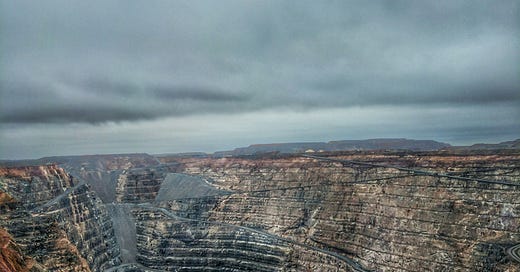The Clean Energy Transition is on our footsteps, the signs are glaring all around us, from the rising use of Electric Vehicles to the inclusion of renewable energy in our electricity mix. All around us, there is increasing advocacy for cleaner sources of energy to ‘light’ our future and save the planet, but powering all these is critical minerals. Unsurprisingly, most people, myself included, had never heard of the term until China used these minerals as a strategic pressure point to exert pressure and retaliate against US tariffs. That raises the question, what are they, and why are they so important
Surprisingly, there is no clear cut defintion of Critical Minerals however there are some agreements on its classification, firstly they are 35 metals which are crucial towards making batteries and powering a greener future and they are termed ‘critical’ because they play vital roles in a country’s economy and various sectors within the economy, and are easily affected by supply chain disruptions . However, rare earth metals are a subgroup of 17 metals within critical minerals that are harder to mine as they require more effort and resources, which makes production tedious compared to other minerals.
The importance of these minerals cannot be stated enough; they are literally the backbone of several industries, from EVs, telecommunications, Grids, AI chips, to electrification. There is a 100% chance the device you are reading this on has one or more forms of these minerals in it.

This is where global politics comes in, Donald J Trump, in the beginning months of his presidency, was heavily focused on annexing Greenland and to a lot of onlookers, this decision was seen as a measure to prevent unwanted attacks from hostile countries. However, Greenland is home to one of the world’s largest deposits of rare earth minerals, minerals that the United States severely lacks. To prove this is not just speculation, take a look at the US-UKRAINE deal. Officially known as the Ukraine–United States Mineral Resources Agreement, this agreement gives the United States access to Ukraine’s minerals. Most recently, the United States signed what is essentially a security-for-minerals deal with the Democratic Republic of Congo ( which happens to be home to a large number of Critical Minerals) and Rwanda. Through this deal, US-backed mining firms will have access to a selection of these mineral resources
It is clear that the United States has realised the role critical minerals will play in the upcoming years and, as such, decided to lay claim to as many as possible. In the meantime, whilst investing in the extraction of these resources, China has built an impressive supply chain, which makes it a major player in the international minerals sector. China, throughout the past decade or so, has invested massively in the extraction, refinement and processing of critical minerals, making it, at the moment, the king of the supply chain.
This dominant position has had its benefits, especially in the recent tariff wars, where the country used export restrictions of rare earth minerals as a strategic tactic to potentially hurt US industries. It makes sense why a key term in the just-signed trade deal agreement with the Chinese Government, the United States emphasised speeding up rare earth exports, which China agreed to, although China still controls the approval of licenses.
As the world shifts to cleaner energy and critical minerals become the subject of international agreements, it has become clear that these minerals have evolved from just being the bedrock of modern technology and decarbonization; they are turning out to be strategic tools.
The current trend bears similarities with Oil and, like Oil, critical minerals are capable of making or breaking economies. Countries which are resource-rich have an advantage, Many countries in Africa contain different quantities of these minerals, from lithium to cobalt. The effective extraction and subsequent local refinement of these minerals can be a big boost to economies.
However, Africa is faced with a big issue: we lack the resources for local refinement and value addition; as such, these minerals will be exported, and we lose out on realising the true value of these minerals. The continent must control the entire supply chain from extraction, refinement, to processing; that is the only way we hold some leverage in the murky, tariff-filled, unpredictable world we live in.





